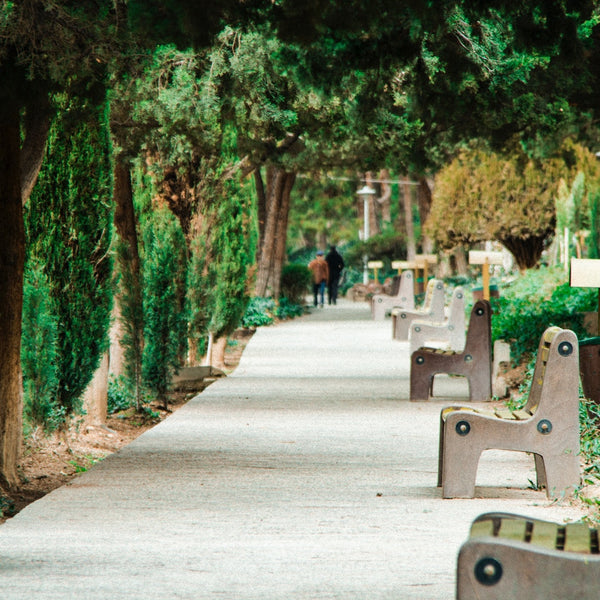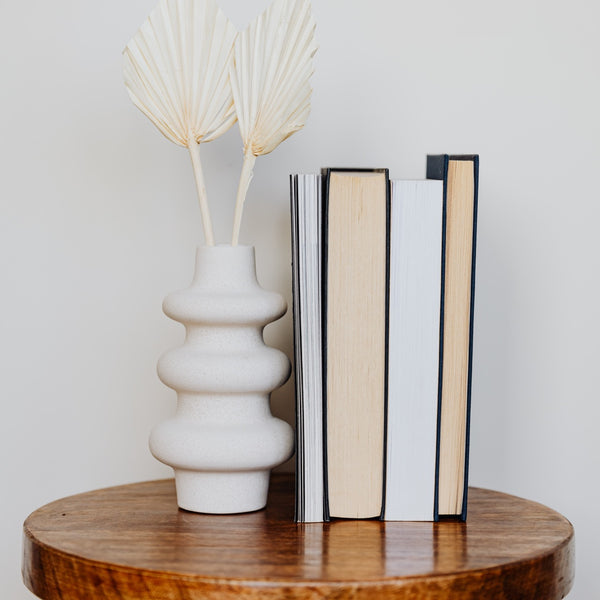Holistic Anti-Aging Remedies

“There is a fountain of youth: it is your mind, your talents, the creativity you bring to your life and the lives of people you love. When you learn to tap this source, you will truly have defeated age.”
― Sophia Loren
Why is our culture is so obsessed with youth? In 2018 the Anti-Aging Market was worth 42.51 billion globally. Meanwhile, meditation is on the rise, and approximately 20 million Americans do Yoga. So… how do mindfulness practices, which foster balance and self-awareness, fit in with the concept of anti-aging? After all, no matter how fast you go, outrunning time isn’t an option. Each moment life is changing… and along with it, so do you. Think about it, even if somehow you did have your very own version of Dorian Gray’s portrait in your attic, with the ability to stay unmarked by age, would you really want it?

Numbers themselves aren’t scary. But what they represent can be, specifically the physical manifestations associated with age: wrinkles, sagging skin, diminished health and mental functioning, and overall vitality. Luckily, as the study of wellness flourishes, the concept of aging is changing. 30 is the new 20, and 50 is still young. In 1907 the life expectancy was only 45... Meanwhile, today people are expected to reach 78, and many far surpass that. So while you technically can’t stop the years from passing, and hopefully wouldn’t want to erase the wisdom that accompanies age, you can make the most of your days, by keeping your body and mind, healthy for as long as possible. Maybe, the concept of “anti-aging” ought to be renamed into something kinder and more authentic, like “self-care aging... or mindful aging.”
Change Your DNA

It sounds impossible and yet... in their groundbreaking book, “The Telomere Effect: A Revolutionary Approach to Living Younger, Healthier, Longer,” Dr. Elizabeth Blackburn and Dr. Elissa Epel explore how telomere’s (caps on DNA) relate-connect to aging. When these caps are longer and stronger, the body’s natural process of cell renewal flourishes, protecting you from inflammation, disease and premature aging. But when they’re shorter, cell renewal is impaired, and your protection is lessened. In turn, inflammation occurs, leaving you open to premature aging and disease. Thankfully, telomeres are resilient little things. And with your help DNA can actually repair itself. Apparently, certain lifestyle habits like exercise and mindfulness practices positively influence your telomeres, and here’s the amazing part: they can actually grow more resilient.
Stress & Aging

Another important thing to keep in mind, according to Dr. Blackburn and Dr. Epel, is to understand that, “Your cells are listening to your thoughts.” And your Telomeres are very sensitive. They react according to how you feel. For instance, stress isn’t so much a problem, it’s more how you process the feelings that go along with it. Apparently, stressful emotions actually penetrate your cells. So think twice before skipping that restorative yoga class that helps you unwind. And make time to meditate. Practice self-awareness… Because if you handle pressure in a cool, level-headed manner and feel capable, instead of triggering your fear response, (flight or fright) it goes along way in keeping your telomeres strong.
Photoaging & Collagen

“Ultraviolet exposure is the primary external factor leading to aging and is termed “photoaging,” according to Dr. Jaimie Glick, Clinical Assistant Professor at Weill Cornell, Medical College. Dr. Glick says sun protection is critical because “sun exposure can break down collagen leading to fine lines, wrinkles as well as saggy skin, and the development of brown spots.”
So how can you protect your skin yet avoid harmful chemicals that may be in sunscreens? Dr. Glick says, research, “mineral sunscreens that contain titanium dioxide and zinc oxide. They act by reflecting UV radiation.” And if you think you don’t need protection on cloudy days and even indoors, think again. Dr. Glick believes it’s critical to use sunscreen year round since, “UVA penetrates clouds and even glass windows.” But still, choosing a sunscreen can be tricky on multiple levels. Ever wonder how much is enough SPF? Dr. Glick recommends, “broadspectrum sunscreens with an SPF minimum of 30, reapplied every two hours.”
Don’t stop at sunscreen. Dr. Glick talks about, “UPF (ultraviolet protection factor) clothing that measures how well fabrics block UV rays.” Also, she believes it’s important to create your own shade... “I always recommend my patients also wear a wide brim hat (there are UPF hats) to protect against the sun’s rays.”
Antioxidants & Skin Renewal

Even if you use a powerful sunscreen, there are other important things to consider that affect aging. No sunscreen keeps all the UV rays out. And the smallest fragments of light can create free radicals (chemically reactive molecules). This oxidative damage, created by free radicals, is believed to be one of the root causes of aging. So always add antioxidants to your skincare routine. In addition to safeguarding you against free radicals, they offer anticancer properties, crucial with sun exposure.
As far as supplements go: a tropical fern from Central America called Heliocare, is an interesting antioxidant Dr. Glick recommends that contains Polypodium leucotomos extract, being studied for its ability to protect against photoaging. Another supplement she believes is worth exploring is, Niacinamide, “a biological active form of niacin (vitamin B3) with antioxidant and anti-inflammatory properties.”
Topical antioxidants in skincare are also important to pair with sunscreen, such as resveratrol, which is extracted from grapes and known for its anti-aging benefits. And while vitamin C and E are also popular forms, Dr. Glick stresses the importance of reading labels before buying because, “over the counter formulations may not be effective.” If choosing C or E, she advises, “look for ones with, “ferrulic acid, as they tend to be more stable and effective.”
Ginger/White Tea Toner

For a DIY natural antioxidant and anti-inflammatory boost, refresh your skin naturally with the baby buds and leaves of white tea, and the powerful anti-inflammatory properties found in ginger.
To create: Brew 1 tbsp white tea and 1/4 tbsp diced ginger, in 2 oz. purified water and 2 oz. witch hazel. Without boiling, allow tea to steep for 10 minutes. Then strain, and refrigerate in a dark glass bottle. Use to refresh tired, dry skin. Ginger is very potent. Be careful around the eye area, and make sure you aren’t sensitive to ingredients.
*Always make sure natural remedies and supplements are safe for you by checking side effects.



